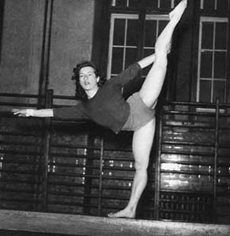With the Winter Olympics set to open in Sochi, Russia, in February, Moment’s Josh Tapper talks to David Wallechinsky, author of The Complete Book of the Olympics and president of the International Society of Olympic Historians.
• Why aren’t American Jewish Olympians, such as swimmer Mark Spitz, as revered as other American Jewish athletes, like Sandy Koufax or Hank Greenberg?
Forgetting about Jews, one of the problems with Olympic sports is that they happen once every four years, and people don’t notice the athletes. An athlete can ride a wave for a few weeks, and one or two will become famous, but it’s very difficult. It has more to do with the short attention span of the American sports fans.
• From the 1948 Games through the 1950s, most of the Jews winning medals came from European countries. What accounts for this, as well as for the dearth of successful American Jewish Olympians at that time?
In America, I think it’s about Jews finding their way in other fields. They didn’t move into sport as much after World War II. But in communist countries, like Hungary and Poland, those governments were seeking out athletes. Whatever discrimination happened in other fields was overlooked in sport at the end of the war. Those countries saw success in the Olympics as a matter of national pride; the person’s ethnic background was not important. So we get sprinter Irena Kirszenstein-Szewinska of Poland—she won seven medals in five different events between 1964 and 1976. Then there’s Ágnes Keleti, a Hungarian gymnast. During the Holocaust, she bought the papers of a Christian girl and used them to survive. When the war was over, she was discovered and later became one of the great women gymnasts of the early 1950s.
• The terrorist attack at the 1972 Games in Munich casts a long shadow over the Jewish Olympic experience. How significant are those games for Jews?
It’s very big, not just for Israelis but for all Jews. There are a couple ways of looking at it. There was a struggle over trying to get the International Olympic Committee (IOC) to hold a moment of silence on the 40th anniversary in London, at the 2012 Summer Olympics, which they didn’t want to do. But what concerns me is that there are elements within the IOC that simply don’t want anything negative out there. At the Olympic Museum in Lausanne [which opened in late December after a 23-month renovation] there will be no mention of Munich. Why? It’s something that happened at the Olympics, but it’s not part of the Olympics.
• Decisions like those seem to inflame longstanding accusations that the IOC as an institution is anti-Semitic, dating back to Henri de Baillet-Latour, who was president from 1925 to 1942 and was friendly with the Nazis, and Avery Brundage, who opposed a boycott as head of the U.S. Olympic Committee in 1936 and, as IOC president, refused to cancel the Munich Games after the attacks.
I don’t think it’s institutional, but there have been very powerful individuals, like Brundage, who certainly acted in an anti-Semitic manner. The current head of the IOC, Thomas Bach, was part of a German-Arab business group that supported the boycott of Israeli products. There was a request when he became president of the IOC in September to resign from that organization. And shortly after he was elected, he resigned.
 • There’s been a lot of clamor for the IOC to take a hard stance against Russia’s anti-gay laws. Why hasn’t it done so?
• There’s been a lot of clamor for the IOC to take a hard stance against Russia’s anti-gay laws. Why hasn’t it done so?
If the IOC didn’t do anything in China, why would you think they’d do anything with Sochi? It’s a leadership failure. There is nothing in the IOC charter that prevents its president from speaking out against human rights abuses. In fact, it’s an opportunity to use the bully pulpit. The thing is, once the Olympics are assigned, the IOC is not going to take them away. There’s so much money invested in getting them going. So the organizing committee will do whatever it wants. It doesn’t have to pay attention to what the IOC says.
• What do you think of the comparison some people, including Jewish leaders, are making between Hitler and the 1936 Games and Putin and Sochi 2014?
I think that’s a bit extreme. What the Nazis were doing was way worse. And in fact, what the Chinese communist government does is way worse than what Putin’s government does overall. Also, I don’t see the Russians stopping gay athletes from competing. It’ll be interesting to see if there are protests. There are rules in the Olympic charter that say that athletes cannot make a political stand, but the question is: Is wearing a rainbow-colored T-shirt a political statement?
• Who is the greatest Jewish Olympian?
Mark Spitz. His performance in 1972 in Munich [when he won seven gold medals in swimming] was amazing.
From Moment Magazine’s January/February issue/www.momentmagazine.com





